In 2000, Daniel Suelo left his life savings-all thirty dollars of it-in a phone booth. He has lived without money-and with a newfound sense of freedom and security-ever since. The Man Who Quit Money is an account of how one man learned to live, sanely and happily, without earning, receiving, or spending a single cent. Suelo doesn’t pay taxes, or accept food stamps or welfare. He lives in caves in the Utah canyonlands, forages wild foods and gourmet discards. He no longer even carries an I.D. Yet he manages to amply fulfill not only the basic human needs-for shelter, food, and warmth-but, to an enviable degree, the universal desires for companionship, purpose, and spiritual engagement. In retracing the surprising path and guiding philosophy that led Suelo into this way of life, Sundeen raises provocative and riveting questions about the decisions we all make, by default or by design, about how we live-and how we might live better.
The Man Who Quit Money Paperback
KSh 1,000.00
In 2000, Daniel Suelo left his life savings-all thirty dollars of it-in a phone booth. He has lived without money-and with a newfound sense of freedom and security-ever since. The Man Who Quit Money is an account of how one man learned to live, sanely and happily, without earning, receiving, or spending a single cent. Suelo doesn’t pay taxes, or accept food stamps or welfare. He lives in caves in the Utah canyonlands, forages wild foods and gourmet discards. He no longer even carries an I.D. Yet he manages to amply fulfill not only the basic human needs-for shelter, food, and warmth-but, to an enviable degree, the universal desires for companionship, purpose, and spiritual engagement. In retracing the surprising path and guiding philosophy that led Suelo into this way of life, Sundeen raises provocative and riveting questions about the decisions we all make, by default or by design, about how we live-and how we might live better.
1 in stock
Related products
-
Netter’s Clinical Anatomy, 5th Edition
KSh 10,050.00Offering a targeted, concise approach to clinical anatomy, Netter’s Clinical Anatomy, 5th Edition, is a portable, easy-to-read text that bridges normal anatomy to common clinical conditions. It features nearly 600 superb illustrations by Drs. Frank H. Netter and Carlos Machado that provide essential descriptions of anatomy, embryology, and pathology to help you understand their clinical relevance. Authored by John Hansen, PhD, an Honored Member of the American Association of Clinical Anatomists, this visually stunning text covers and reviews the sizable area of human anatomy and pathology in a quick, easy-to-grasp format.
-
The Autobiography of Malcolm X
KSh 1,695.00Malcolm X’s The Autobiography of Malcolm X was written in collaboration with Alex Haley, author of Roots, and includes an introduction by Paul Gilroy, author of The Black Atlantic, in Penguin Modern Classics.
From hustling, drug addiction and armed violence in America’s black ghettos Malcolm X turned, in a dramatic prison conversion, to the puritanical fervour of the Black Muslims. As their spokesman he became identified in the white press as a terrifying teacher of race hatred; but to his direct audience, the oppressed American blacks, he brought hope and self-respect. This autobiography (written with Alex Haley) reveals his quick-witted integrity, usually obscured by batteries of frenzied headlines, and the fierce idealism which led him to reject both liberal hypocrisies and black racialism.
Vilified by his critics as an anti-white demagogue, Malcolm X gave a voice to unheard African-Americans, bringing them pride, hope and fearlessness, and remains an inspirational and controversial figure.
Malcolm X (1925-65), born Malcolm Little in Omaha, and also known as El-Hajj Malik El-Shabazz, lost both his parents at a young age. Leaving school early, he soon became part of Harlem’s underworld, and in 1946 he was sentenced to ten years’ imprisonment. It was in prison that Malcolm X converted to Islam. Paroled in 1952, he became an outspoken defender of Muslim doctrines, formed the Organization of Afro-American Unity in 1963, and had received considerable publicity by the time of his assassination in 1965.
If you enjoyed The Autobiography of Malcolm X, you might like Nelson Mandela’s No Easy Walk to Freedom, also available in Penguin Modern Classics.
‘This extraordinary autobiography is a brilliant, painful, important book’
The New York Times -
Tess of the D’Urbervilles
KSh 650.00Young Tess Durbeyfield attempts to restore her family’s fortunes by claiming their connection with the aristocratic d’Urbervilles. But Alec d’Urberville is a rich wastrel who seduces her and makes her life miserable. When Tess meets Angel Clare, she is offered true love and happiness, but her past catches up with her and she faces an agonizing moral choice. Thomas Hardy’s indictment of society’s double standards, and his depiction of Tess as “”a pure woman,”” caused controversy in his day and has held the imagination of readers ever since. Hardy thought it his finest novel and Tess the most deeply felt character he ever created.
-
Constitution of Kenya
KSh 490.00Other books in the series:
- Civil Procedure Statutes
- Commercial Law Statutes
- Criminal Law Statues
- Family Law Statutes
- Labour Law Statutes
- Legal Profession
- Penal Code
- Property Law Statutes
-
Psychology: The Science of Mind and Behaviour 4e
KSh 8,960.00Psychology: The Science of Mind and Behaviour fourth edition has been fully updated to reflect new developments in the field. Its celebrated pedagogical design has been reinforced with key research, issues and offers an exciting and engaging introduction to the study of psychology.The scientific approach brings together international research, practical application and the levels of analysis framework to encourage critical thinking about psychology and its impact on our daily lives. Key features:•Brand new! Psychology at Work interviews from Psychologists in the field provide a glimpse of their day-to-day work and the career path they have taken since completing a psychology degree. •Research Close Ups reflect new research and literature as well as brand new critical thinking questions to increase analysis and evaluation of the findings. •Core subject updates such as DSM-5 for psychological disorders. •Current issues and hot topics such as, social media, prosociality, critical perspectives of positive psychology and coverage of the replication crisis to prompt debates on the questions facing psychologists today.•Focus Arrow Boxes encourage critical analysis and application of the text.
-
Americanah: Chimamanda Ngozi Adichie
KSh 1,695.00SHORTLISTED FOR THE BAILEY S WOMEN S PRIZE FOR FICTION 2014.
From the award-winning author of Half of a Yellow Sun, a powerful story of love, race and identity.
As teenagers in Lagos, Ifemelu and Obinze fall in love. Their Nigeria is under military dictatorship, and people are fleeing the country if they can. The self-assured Ifemelu departs for America. There she suffers defeats and triumphs, finds and loses relationships, all the while feeling the weight of something she never thought of back home: race. Obinze had hoped to join her, but post-9/11 America will not let him in, and he plunges into a dangerous, undocumented life in London.
Thirteen years later, Obinze is a wealthy man in a newly democratic Nigeria, while Ifemelu has achieved success as a blogger. But after so long apart and so many changes, will they find the courage to meet again, face to face?
Fearless, gripping, spanning three continents and numerous lives, the National Book Critics Circle Award-winning Americanah is a richly told story of love and expectation set in today s globalized world.
-
Men In Love
KSh 650.00This is a book about men who love women. But it is not a collection of love stories. It is a study of the secret, erotic fantasies that men have always kept hidden, a taboo-shattering investigation that reveals the deepest, most conflicting feelings that men have about women, men and their own sexuality.
Men in Love goes beyond the socio-sexual cliché of woman seen as either madonna or whore to reveal the conflict of love and rage at the centre of men’s emotions and erotic desires. Based on thousands of candid responses from men ranging from their teens to their sixties, Men in Love – startling and shocking – will change men’s deepest feelings about their sexuality and make the women who care about them understand them as never before.
-
The $100 Startup: Reinvent the Way You Make a Living, Do What You Love, and Create a New Future
KSh 1,495.00“Thoughtful, funny, and compulsively readable, this guide shows how ordinary people can build solid livings, with independence and purpose, on their own terms.”—Gretchen Rubin, author of the #1 New York Times bestseller The Happiness Project
Still in his early thirties, Chris Guillebeau completed a tour of every country on earth and yet he’s never held a “real job” or earned a regular paycheck. Rather, he has a special genius for turning ideas into income, and he uses what he earns both to support his life of adventure and to give back.
Chris identified 1,500 individuals who have built businesses earning $50,000 or more from a modest investment (in many cases, $100 or less), and focused on the 50 most intriguing case studies. In nearly all cases, people with no special skills discovered aspects of their personal passions that could be monetized, and were able to restructure their lives in ways that gave them greater freedom and fulfillment.
Here, finally, distilled into one easy-to-use guide, are the most valuable lessons from those who’ve learned how to turn what they do into a gateway to self-fulfillment. It’s all about finding the intersection between your “expertise”—even if you don’t consider it such—and what other people will pay for. You don’t need an MBA, a business plan or even employees. All you need is a product or service that springs from what you love to do anyway, people willing to pay, and a way to get paid.
Not content to talk in generalities, Chris tells you exactly how many dollars his group of unexpected entrepreneurs required to get their projects up and running; what these individuals did in the first weeks and months to generate significant cash; some of the key mistakes they made along the way, and the crucial insights that made the business stick. Among Chris’s key principles: If you’re good at one thing, you’re probably good at something else; never teach a man to fish—sell him the fish instead; and in the battle between planning and action, action wins.
In ancient times, people who were dissatisfied with their lives dreamed of finding magic lamps, buried treasure, or streets paved with gold. Today, we know that it’s up to us to change our lives. And the best part is, if we change our own life, we can help others change theirs. This remarkable book will start you on your way.

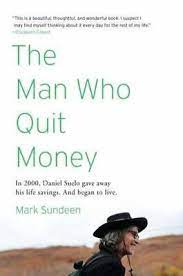
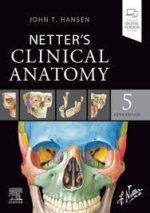
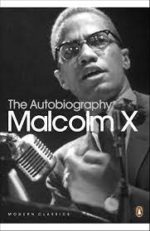


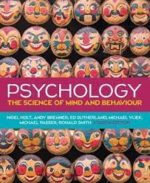

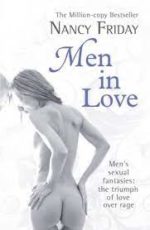
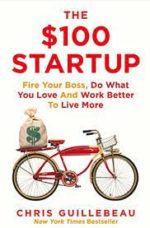
Be the first to review “The Man Who Quit Money Paperback”